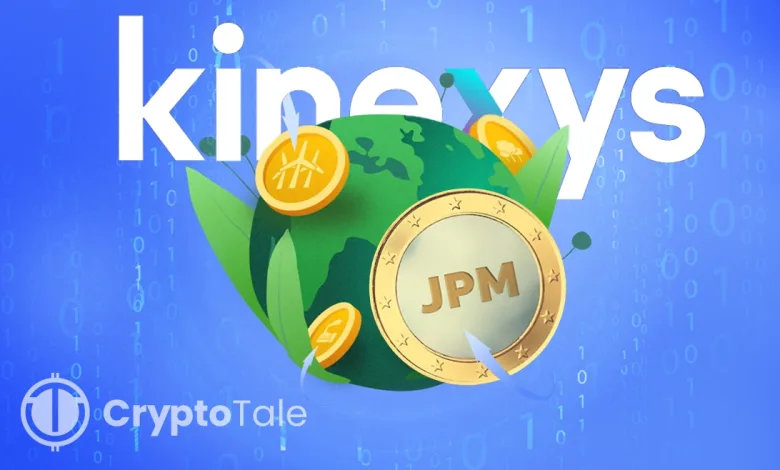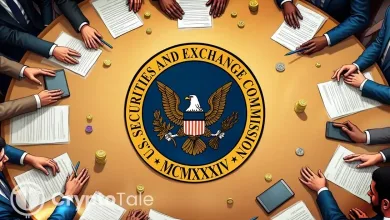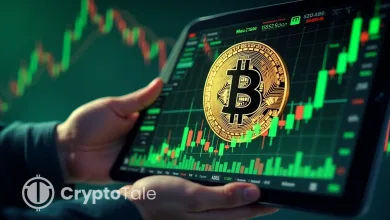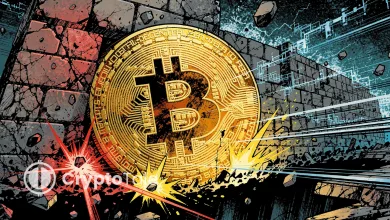JPMorgan’s Kinexys Launches Carbon Credit Tokenization

- Kinexys partners with major registries to tokenize and track carbon credits on-chain.
- Tokenization aims to solve inefficiencies, fragmentation, and lack of transparency.
- Blockchain use may support a global, interoperable carbon credit trading system.
JPMorgan Chase’s blockchain unit, Kinexys, is piloting a project aimed at tokenizing carbon credits through blockchain technology. The bank has partnered with S&P Global Commodity Insights, EcoRegistry, and the International Carbon Registry for this effort. The project will involve creating digital tokens representing carbon credits listed in registry systems operated by the three firms. These credits each represent one metric ton of CO₂ emissions that have been either removed from or not added to the atmosphere, according to a report by Bloomberg.
The initiative will track carbon credits throughout their entire lifecycle and emissions associated with recycling. Kinexys will also assist in solving problems that have existed in the carbon credit markets due to the tracking of the ownership and movements by following a secure ledger. These problems stem from a lack of transparency and decentralized systems. Investigating whether blockchain infrastructure would enhance accountability and facilitate the transfer of credits is one of the questions to be explored by the project.
Enhancing Transparency and Market Liquidity
The Kinexys project will possibly lead to increased transparency and trust in voluntary carbon markets. JPMorgan states that market growth has been hindered due to a lack of standardization, poor information flows, and concerns over market integrity. These include problems such as double-counting of credits or the trading of credits that have already been retired. Blockchain-based records may help mitigate such concerns by creating immutable records for each transaction.
Alastair Northway, Head of Natural Resource Advisory at JPMorgan Payments, noted that blockchain can help develop a globally consistent ecosystem. He emphasized that tokenization could build confidence in infrastructure, boosting market activity and credibility. By ensuring seamless movement of tokenized credits between participants, liquidity and efficiency in carbon trading could see measurable improvements.
Institutional Push into On-Chain Environmental Assets
Such an act by JPMorgan suggests a broader interest among institutions in tokenizing real-world environmental assets. Kinexys, introduced as part of JPMorgan’s digital asset initiative, is also at the center of exploring how blockchain can be incorporated into financial markets. The project aligns with the growing corporate commitments to net-zero emissions, which are likely to drive up demand for carbon offsets. The use of such credits by corporations is frequent, as their environmental regulations or voluntary programs may demand.
The carbon credit market, valued at approximately $933 billion today, is expected to expand at an alarming rate by the end of the decade. Nonetheless, over the past two years, the industry has experienced a decline in demand due to market concerns. JPMorgan noted in its recent research that innovation in market infrastructure could help restore trust. Without these advancements, interest in voluntary carbon credits may continue to decline despite increasing regulatory pressure on carbon emitters.
Related: JPMorgan Files JPMD Trademark to Expand Crypto Services
Pursuit of a Unified Tokenized Ecosystem
JPMorgan is convinced that a common infrastructure, such as a standardized blockchain version, could be used to support the global carbon market. The bank envisions a tokenized environment where credits can be freely transferred among registries, buyers, and sellers. A standard digital format for the credits would help eliminate centralized reconciliation. The system has the potential to reduce transaction costs and enhance reliability across the board.
The history of informal carbon tokenization has seen efforts that are uncoordinated globally with no uniform standards. These small-scale blockchain projects have already developed tokens that tie to carbon credits, although they have limited coverage and stability. The pilot by JPMorgan aims to fill the gap between existing registries and digital platforms. The approach will lead to a higher level of interoperability in the carbon offset markets.
The possibility of greenwashing and the misappropriation of carbon credits has posed a threat to market credibility. Past tokenization trials raised concerns about duplicating credit and potential manipulative activities. With the help of a clear and mutable ledger, Kinexys attempts to minimize such risks and enhance traceability within JPMorgan. Every tokenized credit will be assigned data that points back to the original project, which is verified.




